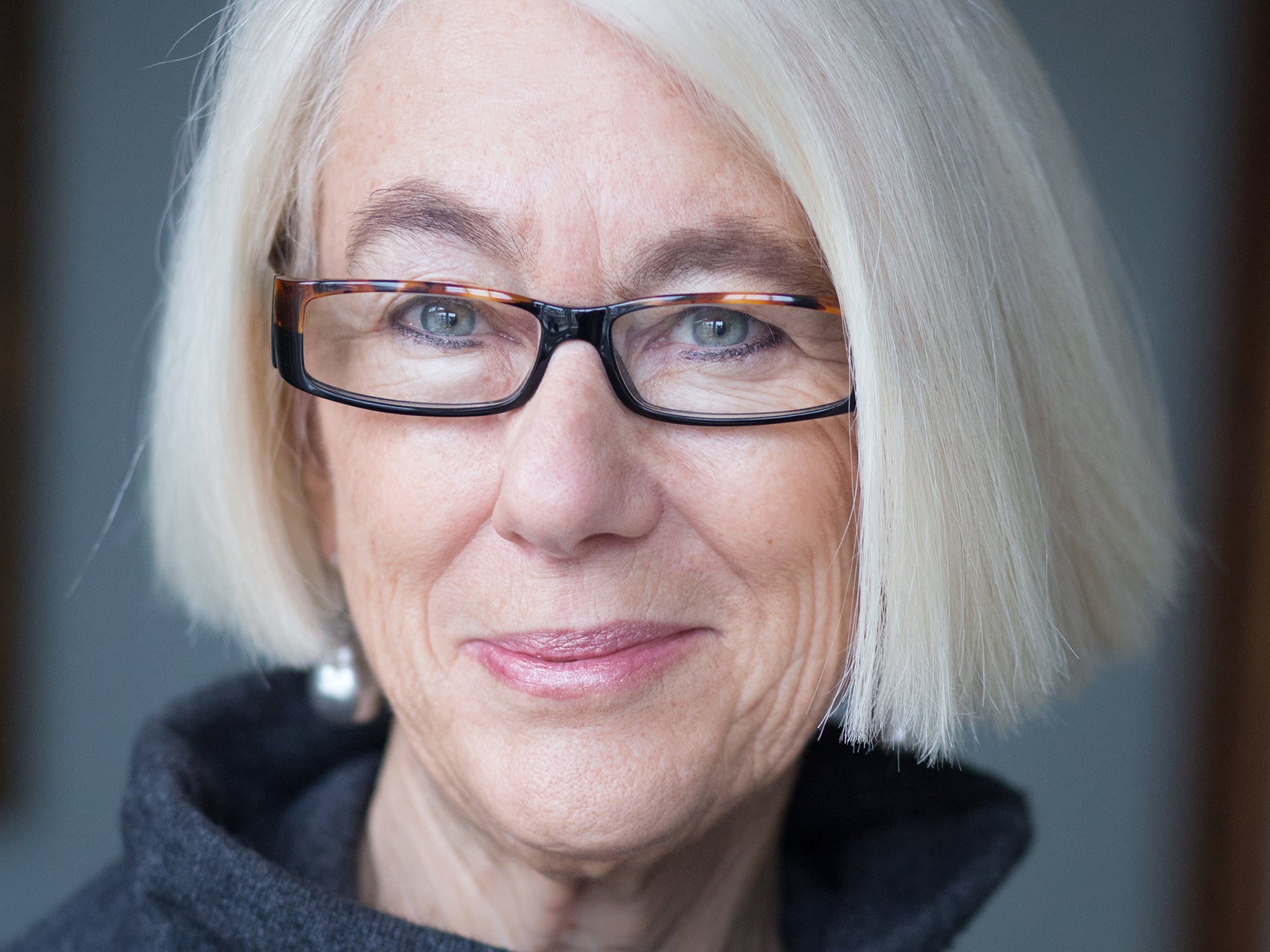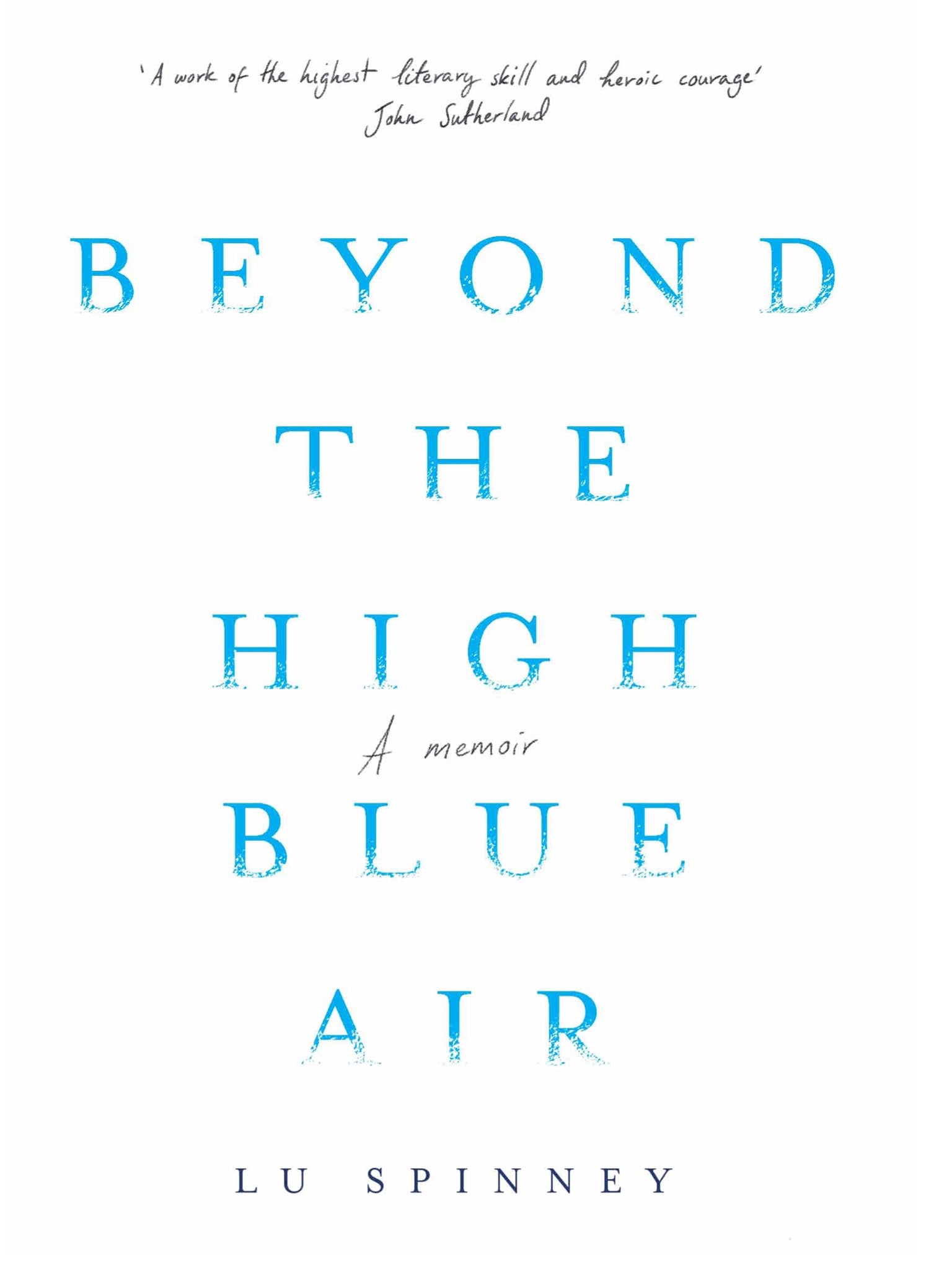Beyond the High Blue Air: Why I wrote a book about watching the deterioration of my son
Lu Spinney’s new book about her son suffering from brain damage reignited the debate about assisted dying. It was described as ‘inspirational’ and ‘beautiful’ by readers. Here she explains why she wrote the book and the effect it had on her and her family

Your support helps us to tell the story
From reproductive rights to climate change to Big Tech, The Independent is on the ground when the story is developing. Whether it's investigating the financials of Elon Musk's pro-Trump PAC or producing our latest documentary, 'The A Word', which shines a light on the American women fighting for reproductive rights, we know how important it is to parse out the facts from the messaging.
At such a critical moment in US history, we need reporters on the ground. Your donation allows us to keep sending journalists to speak to both sides of the story.
The Independent is trusted by Americans across the entire political spectrum. And unlike many other quality news outlets, we choose not to lock Americans out of our reporting and analysis with paywalls. We believe quality journalism should be available to everyone, paid for by those who can afford it.
Your support makes all the difference.There is a strange contradiction in writing about a private experience and making it public. I’ve just written a book about a subject that for five years I not only avoided but found bitterly painful to talk about. To discuss my son Miles’s situation with anybody other than family or closest friends felt like a betrayal of his privacy; it was too intensely private to share. And now I’ve written a book about it.
Miles had a snowboarding accident in Austria in 2006. Aged just 29, he suffered a traumatic brain injury and I spent six weeks in Innsbruck, where he was in hospital.
Despite the horror of those weeks, the dread-filled walks to the hospital twice a day and the inert, profoundly damaged Miles I encountered every time, I had guessed they might be halcyon days. While different members of the family came and went and I remained in the quiet town with its clean cobbled streets and Tyrolean propriety, we were a family together in a bubble of privacy, isolated by our shared grief and protected by our anonymity. We had no need to present ourselves or explain our situation.
But back in London we were a family that had been visited by disaster, marked out, different. We had to explain what had happened to Miles. It felt like a grave breach of his privacy – he had been so diminished by his brain injury that to describe him was to incur people’s pity and pity for him I could not bear. He was a young man who had never once, in all his life, had to endure pity.

“What made you start to write about it?” people ask me, or, more often, “Was it cathartic?” The reason I started is that it felt necessary; I felt compelled to write. There was no catharsis, if that means to release, and thereby get relief from, repressed emotions. I simply needed to try to understand what had happened to Miles and to us as a family.
One day I came home from visiting him, went straight up to my desk and wrote about the moment of first confronting Miles at the hospital in Innsbruck. The scene, part of which is reproduced here, had remained vividly imprinted on my mind: the strange, empty terror I felt, that I knew all the family felt too, followed by the shock of seeing him unconscious and on a ventilator. In retrospect it was a moment of rupture in our lives, a point of no return.
I found that writing about it helped make sense of it. It wasn’t painful; I found to my surprise that I enjoyed the process. And so the book grew. As I retrieved the memories, I realised something more significant was happening. By writing about the extraordinary world Miles now inhabited, I could bear witness to his suffering and to the suffering of the thousands of people in his situation. And, so important to us as a family, I could reclaim his identity and pay tribute to the man he was before his accident.
He had been a young man defined by his energy and vitality, his humour and down-to-earthness. He was adventurous, a risk-taker, but also reflective and kind. Gifted, powerful, handsome, his future was full of promise. I wanted to retrieve that, to portray his brilliance and his flaws.
After Miles awoke from his initial coma – not the Hollywood awakening we had all come to expect – he had remained in what is known as a ‘minimally conscious state’. Unable to speak or control any aspect of his life, he was nevertheless at times aware enough to feel and indicate pain, humiliation, anger, misery, frustration, loneliness, boredom – the same sensations and emotions as before, but imprisoned in a twilight world of the profoundest solitude.
Releasing the book has been a strange process for me and for my other three children, Will, Claudia and Marina. Their support throughout the years following Miles’s accident was extraordinary and I could not have survived it in the way I did without them. Their support during the writing process was remarkable too. In many ways it was a collaborative venture. They read and edited every word; it was essential that they concurred with everything I wrote.
Now that it’s out there we are freshly vulnerable. Of course this applies to all writers, the intensely private writing process followed by exposure and scrutiny. In our case, we faced the exposure of both the book itself and of Miles.
The wonderful irony now is that, through sharing our painfully private story with strangers, Miles has been restored to us. The reaction of complete strangers has been overwhelming, as has those of friends. I am moved beyond words by the kindness of people who have felt it necessary to express their feelings about my book and it is through their affirmation that Miles has finally had his dignity given back to him.
Only two people at a time can visit the ward, accompanied by a nurse. I go first with Will, down the corridor that we will come to know so well, stopping at the end to take out the plastic aprons and gloves from their dispensers on the walls. Even more disoriented in this new uniform, we then turn the corner to face the ward. It feels as though we have entered an underwater world: tinted green glass divides cubicles and nurses’ stations, and everywhere is silent save for the rhythmic tidal swish of respirators and the soft sonic keening of machines, like whale calls in the deep. Nurses and doctors glide through the rooms, serious, intent on the silent bodies each beached on their high beds.
He lies on his back on a high bed in the centre of the room, perfectly still. The stillness is terrible. His strong face, the one we are so familiar with, that we know to be so expressive, humorous, animated, is closed from us in a way it would not be if he were asleep. After a week in the mountain sun his face and neck alone are tanned, a clear demarcation line where the top of his tee shirt would have been. He always tanned easily and it suited his dark looks; now that demarcation line breaks my heart.
A sheet has been placed like a loincloth over his middle, but otherwise he is naked, his muscular young man’s chest and arms and beautiful virile legs defying his injury. A multitude of wires and tubes connect his brain and body to the bank of machines and electronic charts behind him which are recording every tremor of his existence, tubes coming out of his nose, his mouth, the top of his head, his chest, his wrist; but his face, bruised down the right side only, is calm, his eyes closed, the violent new scar running serenely from his hairline up and over his partially shaven head and down to the base of his right ear.
He looks so strong, so healthy, in such fine physical condition. How can it be that only his brain is damaged, and quite so damaged? It is later we are told that he comes to be known by the doctors and nurses on the ward as The Athlete; the nurses flirt coyly with the word. But it is not just his body that is powerful; something is radiating directly from him, the air is thick with his presence….
Click here to buy ‘Beyond the High Blue Air: A memoir’ by Lu Spinney from Wordery
Join our commenting forum
Join thought-provoking conversations, follow other Independent readers and see their replies
Comments